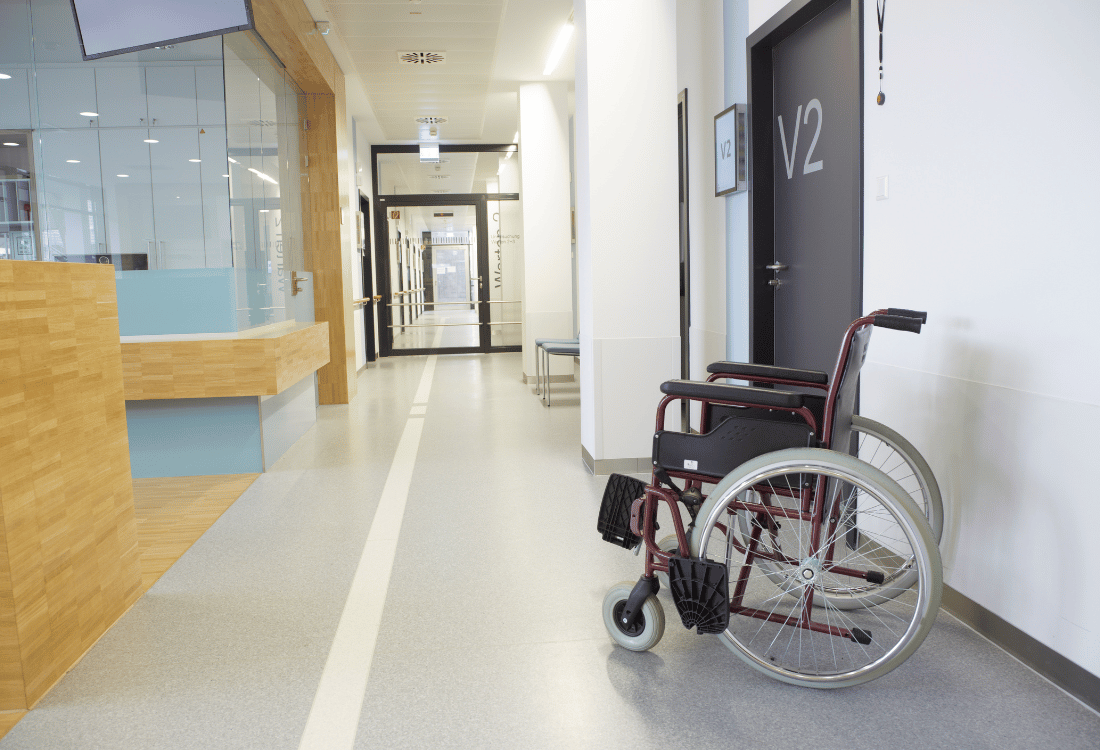As NHS hospitals continue to internalise the lessons of the Covid 19 pandemic, the importance of sustaining a sterile and hygienic environment has become more apparent than ever. The pandemic starkly highlighted the potential of hospitals as hubs from which Covid and other respiratory viruses could spread throughout the wider population, and the difficulty of contamination control.
An important aspect of hospital hygiene is the flooring system. Hospital floors are continually exposed to high levels of foot traffic, spills, and other contaminants that can harbour harmful viruses, bacteria, and pathogens, which is why it’s essential for hospital wards to have an antibacterial flooring system.
This is especially critical in sterile areas such as operating rooms, ICUs, and maternity units, and high traffic areas such as front of house and A&E.
As an antibacterial flooring solution for hospitals, resin flooring is one of the best options available on the market. Let’s look at why resin flooring is such a good choice for promoting hygiene and helping you control the spread of infections in hospitals.
What Is Resin Flooring?
Resin flooring is a seamless floor coating made from a liquid polymer such as epoxy, polyurethane, or, in some cases, acrylic. Resin flooring systems are increasingly used in commercial and industrial settings due to their durability, minimal maintenance requirements, and strong chemical resistance, and they are also being deployed in healthcare facilities for their antibacterial and sterile properties.
A resin flooring system is installed by mixing synthetic resins with a hardener that, once cured, creates a strong, scratch resistant, and chemical resistant surface, without the microscopic scratches and seams that allow pathogens to thrive in conventional hospital floors.
The Antibacterial Properties Of Resin Flooring
One of the key reasons that resin flooring is perfect for hospitals is its hygienic/antibacterial properties. The smooth, seamless surface of resin floors leave no harbour for bacteria and germs to hide and multiply, unlike other types of flooring with grouts, seams, or joints between flooring tiles or sheets. Some resin flooring systems can also be specifically treated to have superior antimicrobial properties. For example, some floors can be treated with silver ions to inhibit the growth of bacteria on the surface and make them easier to clean. This makes a resin flooring system a powerful ally for hospitals to prevent the spread of infections.
Easy Cleaning And Maintenance
Hospital wards require frequent cleaning and disinfecting to sustain a hygienic and safe environment for their patients, staff, and visitors. Resin flooring solutions are a winner in this regard, being incredibly easy to clean and maintain, making them the perfect choice for busy healthcare settings. The smooth surface of resin floors allows quick and thorough cleaning with minimal effort, reducing the volume of cleaning agents you use. Another advantage for hospitals is that resin floors are strongly resistant to chemicals and detergents, so they can be sanitised regularly without risking damage.
What Next?
With the winter seasonal illness season just around the corner, investing in a high-quality resin flooring solution is a good way of increasing the well-being and safety of your patients and staff. To find out more about the benefits of resin flooring systems for hospital and how we can help, please contact Advanced Resin today.




